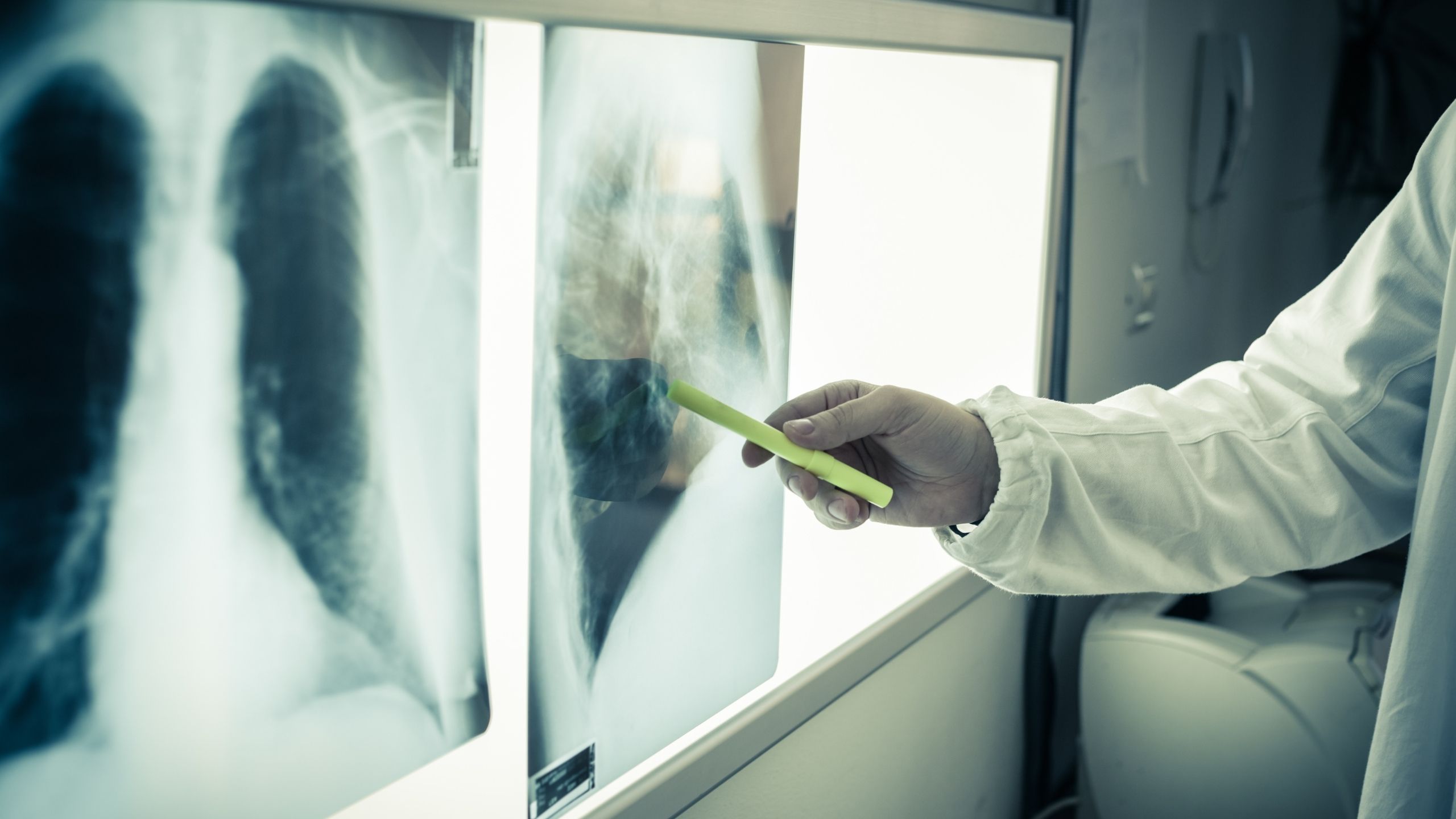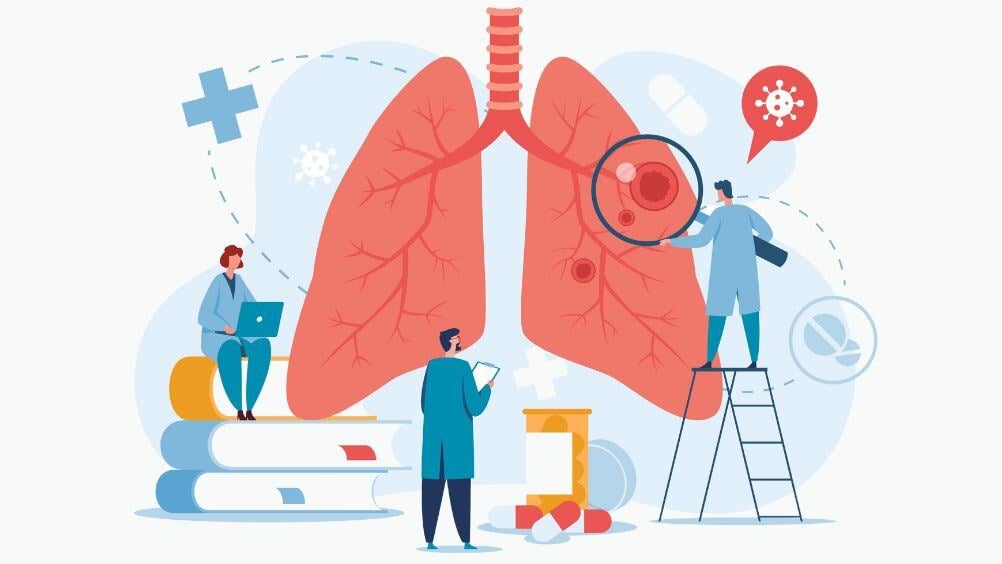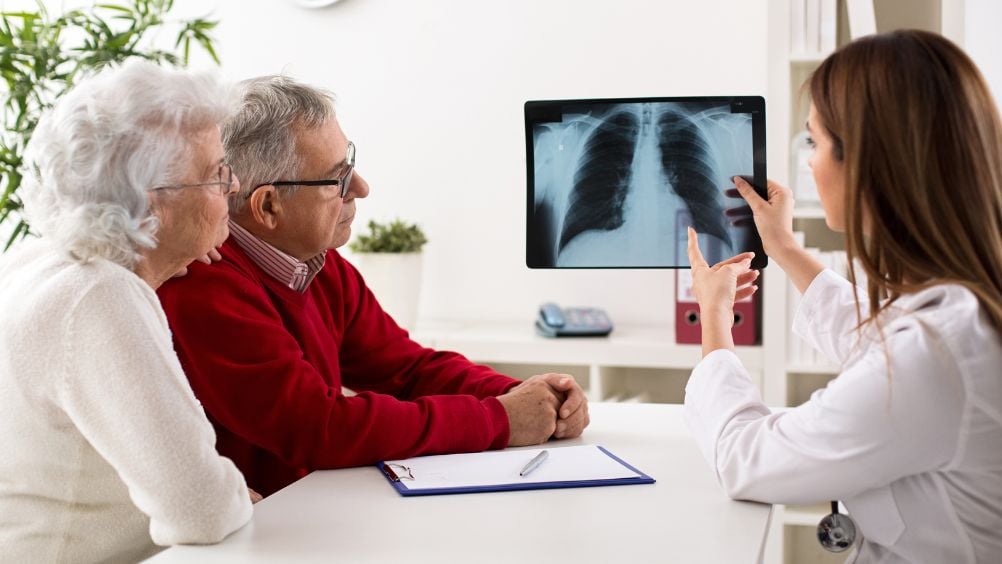Some encouraging news about non-small cell lung cancer (NSCLC) was published in a 2020 National Cancer Institute study that shows a lower death rate for lung cancer patients. The reason for this is two-fold: 1) People are consuming fewer tobacco products today with the known health issues they can cause, and 2) Recent advances in lung cancer treatment allow patients to live longer lives than ever before.
Our very own patients here at Willamette Valley Cancer Institute were able to participate in some of the cancer research that has led to these improved lung cancer treatment options. And, we continue to be a part of trials that are helping change the future of lung cancer treatments.
Earlier Lung Cancer Diagnosis Saves Lives
One of the most significant problems with cancers of the lung and bronchus is that they can easily go undiagnosed until it’s at an advanced stage when symptoms finally appear. With a new standard in lung cancer screening we are able to find lung cancer when it’s in an earlier stage, and easier to treat. This alone helps reduce the likelihood of dying of lung cancer. Are you a candidate for lung cancer screening? Find out!
Who qualifies for lung cancer screening tests?
A low-dose CT scan of the chest can be performed once a year if you are:
- Between the ages of 50 to 80, AND
- You are a current smoker or have quit smoking within the past 15 years, OR
- Smoked one pack or more of cigarettes per day for 20 years or more, or two packs a day for ten years or more
This can help identify abnormal areas in the lungs that may be early-stage cancer or are likely to become cancerous. This screening test is usually covered by insurance for patients who qualify.
Machine Learning Can Help Detect Lung Cancer Tumors Earlier
Radiologists are increasingly using artificial intelligence (AI) systems to assist in reviewing lung scans. AI helps to improve the radiologist’s ability to diagnose cancer when used in combination with a screening or diagnostic scan to determine where cancer could be located, even if it is not visible in the images to the naked eye.
This was developed using a concept called deep learning. Deep learning systems use real-life examples from actual CT scans to distinguish a lung cancer tumor from a non-cancerous splotch on the scan.
New Options for Advanced Lung Cancer Treatment
Targeted Drug Therapy Using Biomarkers
Biomarkers are specific changes in a patient’s lung cancer cells. This could mean there is a mutation, addition, deletion, or rearrangement of DNA that is causing the lung cancer cells to grow uncontrollably. Based on what is found in the biomarker testing process, the oncologist can choose treatments that are most likely to be effective against a particular biomarker. This is called targeted therapy. These drugs target a specific genetic mutation and proteins on the cells that help cancer grow, while minimizing damage to healthy cells.
Thanks to cancer researchers and patients who participated in the clinical trials, we know of several biomarkers that can now be treated with FDA-approved targeted therapy drugs. These biomarkers include:
- Epidermal Growth Factor Receptor (EGFR).
- Anaplastic Lymphoma Kinase (ALK) gene rearrangement
- ROS1 rearrangement
- BRAF V600E mutation
- NTRK fusion
- MET amplification or MET exon 14 skipping
- RET rearrangements
Immunotherapy Therapy for Lung Cancer
Immunotherapy, sometimes referred to as biologic therapy, is now FDA approved for advanced non-small cell lung cancer patients. It can be given as a first line of defense before other treatments are needed, or in combination with chemotherapy.
Immunotherapy helps the patient’s body block certain proteins that fuel cancer growth. These are called immune checkpoint inhibitors. Drugs have been developed to block the PD-1 protein from connecting with the PD-1 receptors on T-cells in the body. By doing this, the cancer is not able to easily grow.
Side effects are generally less toxic than those experienced with chemotherapy but can result in fatigue and inflammation. Cancer treated through immunotherapy may be less likely to return.
More research on immunotherapy treatments for lung cancer is currently underway.
Ongoing Lung Cancer Research
As we’ve already discussed, lung cancer research has produced many improvements in how lung cancer is detected and treated, but it doesn’t end there. Willamette Valley Cancer Institute continues to look for new and better ways to help lung cancer patients.
One of the most promising clinical research studies, available through our cancer centers, is Molecularly Informed Lung Cancer Treatment in a Community Cancer Network: A Pragmatic Consortium, called MYLUNG for short. The study aims to understand metastatic non-small cell lung cancer at the molecular level and develop new targeted treatment options. MYLUNG is ground-breaking research that is expected to improve the lives of thousands of non-small cell lung cancer patients. It will consist of three protocols over five years:
- Review of real-world patient data to determine information about tumor testing and treatment.
- Enrolling about 1,000 more patients with their lung cancer journey monitored and followed closely. The focus will be on how the diagnostic biomarkers are used by oncologists to make clinical decisions.
- Over 7,500 more patients will be recruited within the five years. The clinical trials during the stage will focus on integrating findings from the previous phases and exploring new processes for best lung cancer treatment recommendations.
In addition to MYLUNG research, our cancer researchers are looking for additional ways to effectively diagnose and treat lung cancer.
How Does the Future Look for Lung Cancer Treatment?
With the advancement of science and technology, and the active mission of cancer researchers to find better treatment options, lung cancer patients are surviving longer and living fuller lives after cancer than they did even a decade ago.
If you qualify for lung cancer screening speak with your general practitioner about starting this annual test. If you or a loved one has been diagnosed with lung cancer and you’d like to learn more about these latest treatment options, request an appointment at one of our locations in Eugene, Corvallis, Florence, or Lincoln City for a consultation.





